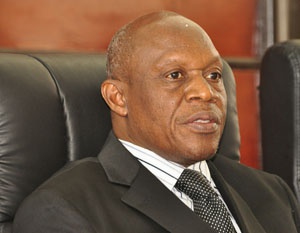Ten entrepreneurs operating in domestic waste management, climate-smart agriculture and energy efficiency have successfully graduated from the Ghana Climate Innovation Centre (GCIC).
The group, which formed the third cohort, would be championing green initiatives in their areas of specialisation and contribute to the country’s effort towards climate change adaptation and mitigation.
Mr Albert Osei, Founder of Koko King, a traditional food packaging company, speaking at the graduation ceremony at the weekend, counselled the entrepreneurs not to be afraid of failure because it drives inspiration.
Over the 12 months mentorship period, participants have received entrepreneurship practical lessons, executive coaching with renowned persons, and business leadership.
The occasion was used to induct cohort five of entrepreneurs who would receive the support to validate their business model, build management expertise, marketing skills and develop up-scaling strategies for their business.
Mr Osei said, “You cannot succeed if you fear failure. It is the failure that will strengthen you to find creative means to provide solutions to problems. In the last 10 years we at the Koko king have failed every year in one way or the other,” he said.
“It takes a long time to success, so you must persevere, and be patience because you will be frustrated with the system, family and financers. You have to maintain your sanity and be focused because there will be pressure from your family wanting to see results in a short term.”
Mr Osei advised the entrepreneurs to find solutions to big problem that could sustain their business for more than a decade.
“As a business person you must have a mind of steel and be crazy. It will not come on a silver platter, you have to start, fail, start and fail before you will succeed,” he said.
Madam Rukayatu Sanusi, Executive Director of the GCIC, stated that the effects of climate change did not only present challenges but also offered many opportunities for entrepreneurs to harness.
She said the GCIC work was at the nexus of climate change, private enterprise, and sustainable development.
“Our work is at the heart of business activity and a different premise of innovation. We proffer a different approach to commercial activity and a different premise in innovation.”
Madam Sanusi said circular economy was an emerging business strategy that enables companies to innovate in ways that address resource scarcity and climate risk, in response to consumer and societal pressure to reduce waste and unlock that $4.5trillion economic opportunity.
Founded in 2016, GCIC is a pioneering business incubator with a unique focus on SME ventures and entrepreneurs in the Green Economy. It is funded by a grant from the governments of Denmark and the Netherlands through the World Bank, and is managed by a consortium led by Ashesi University, including Ernst and Young, SNV Ghana and the United Nations University.
Business News of Tuesday, 9 July 2019
Source: ghananewsagency.org













